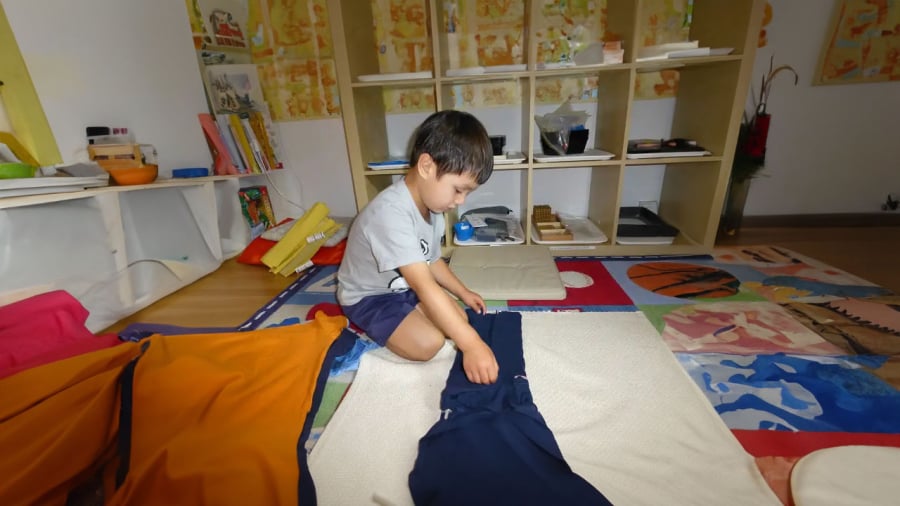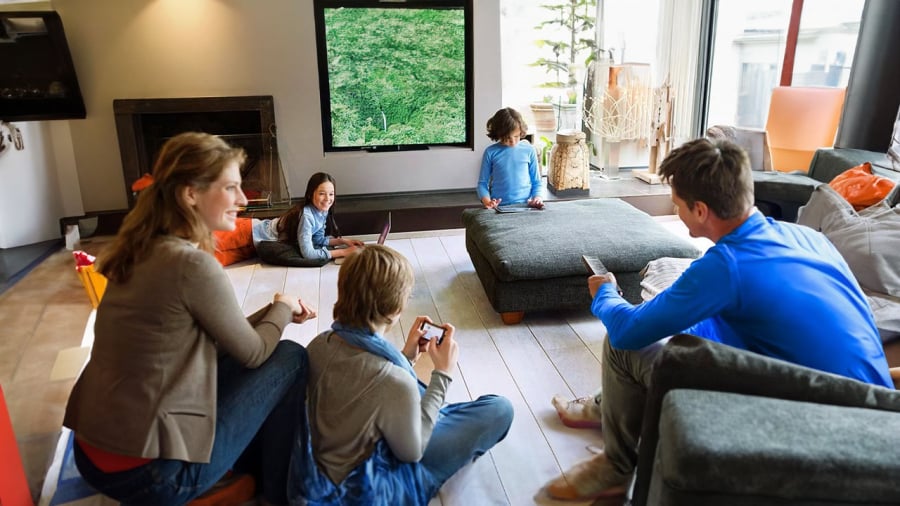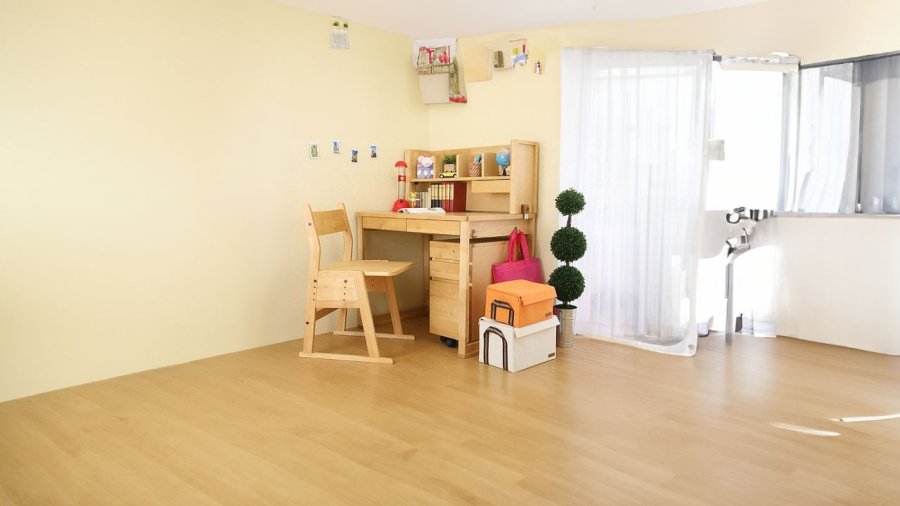Raising a child, every parent aspires their child to be successful, outstanding, and dutiful. What factors contribute to that? Swedish educator Ellen Kay once said, “Environment is crucial to a person’s growth. A good environment is the foundation for children to develop correct thinking and good character.”
Therefore, the family of origin, where parents are born and raised, plays a crucial role in a child’s life. From there, children develop their personality traits. The family is where children find happiness and have the energy to study. Whether the bedroom, living room, and work desk are neat or not affects the child’s practical ability, social needs, and academic level, etc. A messy, cluttered house will have an impact on the child’s psychology. If the house is cheerful, warm, and tidy, the child will have a fresh soul.
In addition, there are 3 positions that are less noticed but have a great impact on a child’s psychological development and learning.

Wardrobe – where children develop practical skills
From a young age, parents can teach children how to fold and organize clothes with them. This helps the child develop skills and a work ethic. But many families think that their children just need to learn and there’s nothing special about it. Thus parents do everything and the children don’t know anything. In fact, involving children in tidying up the wardrobe not only trains their practical skills but also affects their academic performance.
Beijing Jiaotong University’s affiliated high school once organized a wardrobe management class. It aims to relieve children from the burden of studying and learn the attractiveness of self-management through practice.
The skill of storing things in a closet teaches children observation and organization skills in the future, so that when they grow up, children are familiar with a tidy mindset. Organizational skills are crucial to future success. How one perceives space is related to math problems at school and how one organizes their work in life. In the process of wearing clothes, buttoning, and sorting personal belongings, children also practice categorization and pairing. These abilities are exactly what children need to learn geometry and sequences. So parents should let children do things themselves instead of doing everything for them, let them be independent and learn from the smallest things.
Children should do small tasks, but they must be meaningful tasks. When a child folds a set of clothes and tidies the wardrobe by themselves, they will feel valuable, have a high sense of achievement, and self-confidence. When they learn how to deal with “messy piles” and establish good order, they also lay a solid foundation for managing their own time and future life.
Therefore, if parents often tidy up the wardrobe with their children and help them arrange it, not only will it make the house tidy, but it will also help children develop independence and organizational skills.

Living room – where children learn life management skills
Research shows that the public space environment is closely related to children’s survival skills. The living room is the family’s public space, where the family gathers together. The cleanliness of the living room and the way it is arranged greatly affects a child’s life management skills.
Scholar Lohman identifies a close relationship between space and vision, while also believing that whether a space is orderly or not will affect children’s visual experience. Therefore, if your living room is ordered, children will be accustomed to that image and mindset. On the contrary, if the living room is messy, children will also get used to disorderliness and messiness. That’s why when parents leave the living room messy, children become accustomed to messiness and lose the desire to take control of their lives.
American psychologist Bandura said, “Imitation is an important way for children to understand the world and acquire knowledge.” Therefore, parents often tidy up the living room and let children join in will help them imitate the act of tidying up their own toys. If parents lack aesthetic awareness of order, children will imitate and destroy objects. This not only leads to a less stimulating environment for children but also inhibits their ability to manage their lives.
The living room is also a place for children to socialize, where they invite friends to play, their family invites guests to visit, or hold parties. The living room is where others can perceive your family. Therefore, a tidy and beautiful living room helps children have a sense of identity in group interactions and enhances their desire to make friends.

Study desk or work desk – the results of a child’s learning
A study desk or work desk is not only a companion throughout a student’s learning journey, but also a foundation for their future training and learning. Therefore, parents should instill in children the habit of organizing their belongings neatly and living scientifically from a young age.
If a child’s study desk or work desk has too many things and is difficult to organize, the child will feel pressured, lose focus when sitting at the desk, and have poor practical ability. Therefore, show your child how to organize their study desk in a tidy, orderly, and scientific manner. Children at different ages have significant differences in autonomy, practical ability, and awareness. This requires parents to actively intervene, adjust children’s organizational skills as early as possible, as the earlier parents can affect their positive learning outcomes. You should guide your child gradually with tasks like organizing books, tools, step by step helping the child build discipline and maintain it.
Learning Tips for Parents: 12 Japanese Techniques to Use with Your Children
Discover the 12 principles of teaching children in the traditional Japanese way that parents can learn with Dien May XANH! By instilling these principles when your children are young, you can ensure that they grow up to be obedient, smart and polite, the hallmarks of a successful education in Japan.
Mothers’ Need for Awareness of Dual Activity of Breastfeeding and Watching TV
In the contemporary world, in which technology pervades our lives, some mothers tend to soothe their babies through nursing while simultaneously watching television. Although this practice may not appear to affect the infant, studies show that it can in fact have dire repercussions on the baby’s well-being, both in terms of physical health and mental growth. In this article, we will look at the possible reasons for this activity and its potential outcomes.





































